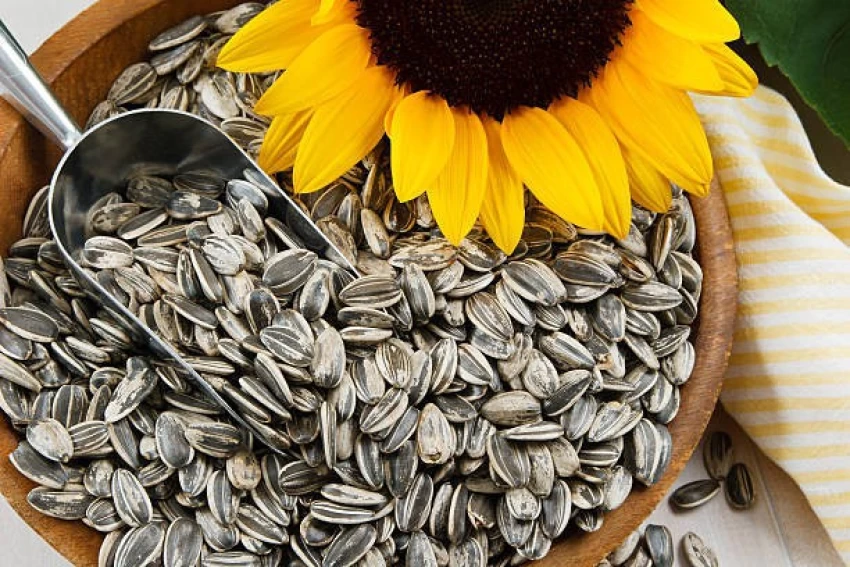Sunflower Seeds
Sunflower seeds are the edible seeds of the sunflower plant (Helianthus annuus). Here are some key points about sunflower seeds:
Types of Sunflower Seeds
- Linoleic: These are the most common and are high in polyunsaturated fats.
- High Oleic: These have a higher content of monounsaturated fats.
- NuSun: A mid-oleic variety that is a balance between linoleic and high oleic.
Nutritional Value
- Rich in Healthy Fats: They contain both polyunsaturated and monounsaturated fats.
- Protein: They are a good source of plant-based protein.
- Vitamins and Minerals: High in vitamin E B vitamins (such as folate and niacin) and minerals like magnesium selenium and zinc.
- Antioxidants: They contain phenolic acids and flavonoids which have antioxidant properties.
Health Benefits
- Heart Health: The healthy fats and antioxidants contribute to heart health by reducing inflammation and oxidative stress.
- Anti-Inflammatory Properties: The presence of vitamin E and other antioxidants can help reduce inflammation in the body.
- Skin Health: Vitamin E promotes healthy skin by protecting it from oxidative damage.
- Blood Sugar Control: The fiber content can help in regulating blood sugar levels.
Culinary Uses
- Snacks: Often consumed roasted and salted as a snack.
- Salads and Baking: Used as toppings for salads in baking and as an ingredient in various dishes.
- Sunflower Seed Butter: An alternative to nut butters like peanut butter suitable for those with nut allergies.
Sunflower seeds are the edible seeds of the sunflower plant (Helianthus annuus). Here are some key points about sunflower seeds:
Types of Sunflower Seeds
- Linoleic: These are the most common and are high in polyunsaturated fats.
- High Oleic: These have a higher content of monounsaturated fats.
- NuSun: A mid-oleic variety that is a balance between linoleic and high oleic.
Nutritional Value
- Rich in Healthy Fats: They contain both polyunsaturated and monounsaturated fats.
- Protein: They are a good source of plant-based protein.
- Vitamins and Minerals: High in vitamin E B vitamins (such as folate and niacin) and minerals like magnesium selenium and zinc.
- Antioxidants: They contain phenolic acids and flavonoids which have antioxidant properties.
Health Benefits
- Heart Health: The healthy fats and antioxidants contribute to heart health by reducing inflammation and oxidative stress.
- Anti-Inflammatory Properties: The presence of vitamin E and other antioxidants can help reduce inflammation in the body.
- Skin Health: Vitamin E promotes healthy skin by protecting it from oxidative damage.
- Blood Sugar Control: The fiber content can help in regulating blood sugar levels.
Culinary Uses
- Snacks: Often consumed roasted and salted as a snack.
- Salads and Baking: Used as toppings for salads in baking and as an ingredient in various dishes.
- Sunflower Seed Butter: An alternative to nut butters like peanut butter suitable for those with nut allergies.
Have Questions? Get In Touch!
If you have any questions about our products or services, please feel free to contact us directly or submit a request through our "call back" form.

© 2024, Venkateswara Trading . All rights reserved. Designed by Web Technoedge Solutions Pvt. Ltd.
